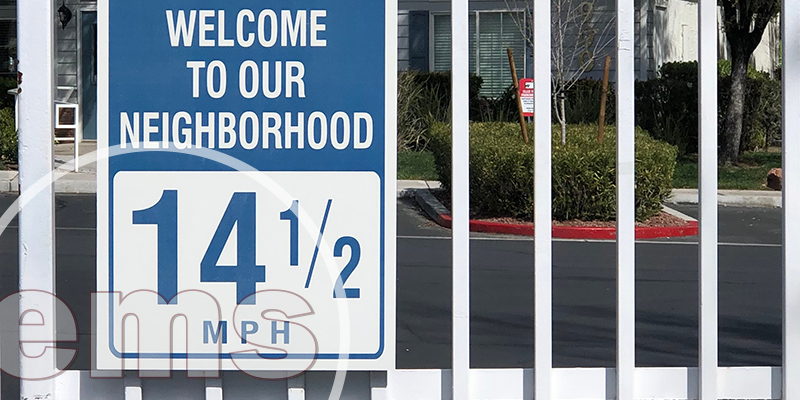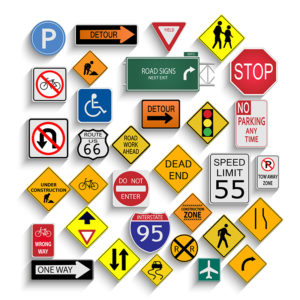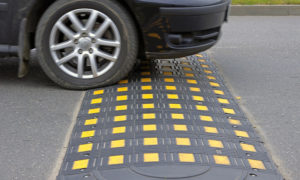HOA traffic enforcement is a commonly discussed issue among many communities. With reckless driving and speeding becoming more prevalent, it is easy to see why some boards might want to impose their own traffic rules.
HOA Traffic Enforcement: On Private and Public Roads
Before an association can create its own traffic rules, it is first necessary to determine the nature of the roads in the community. Homeowners associations tend to have more authority when it comes to private roads as opposed to public ones. If an HOA with roads open to the public is experiencing traffic issues, it is best to seek help from local law enforcement. They have jurisdiction over these roads and can provide assistance with minimizing traffic accidents and problems.
As for private roads, HOA boards can enact traffic restrictions to govern drivers in the community. Broadly speaking, homeowners associations do have the authority to create any rules and regulations. Boards can simply treat it as just another rule or policy that will be incorporated into its governing documents.
Of course, it is still imperative to turn to state law for guidance on what HOAs can and can’t do. In Arizona, for instance, there is no law that specifically gives associations the power to impose traffic rules. However, HOAs do have a duty to protect the safety of members from potential threats and dangers.
Furthermore, most governing documents allow boards to enact rules and restrictions, especially when it comes to the safety and welfare of members. Boards can enact policies that prohibit owners from committing any acts that endanger the safety of other owners or create a general nuisance in the neighborhood. Within this context, reckless driving and speeding definitely fall under the board’s umbrella.
How to Reduce Reckless Driving in HOA Community
For homeowners associations with private roads — i.e. those only open for member use — it is often necessary for the board to take matters into its own hands. Here are the ways an HOA can prevent traffic accidents and minimize reckless driving in its community:
1. Come Up With HOA Traffic Rules
First of all, a board must amend its governing documents to include traffic rules. Impose speed limits and determine how drivers should behave while on the road. Boards should treat traffic violations just like any other covenant or rule violation. There should be a violation letter and a hearing. Law enforcement may not have jurisdiction over private roads, so it is up to the association to take action.
2. Educate Homeowners on Traffic Safety
Beyond simply imposing traffic rules, it is equally important to educate owners on traffic safety. Associations with their own traffic rules should duly inform members of these rules using available communication channels. This includes sending out a notice, posting to the HOA website, and advertising it in the newsletter. Owners can’t follow the rules if they don’t know what the rules are.
3. Post Signs Everywhere
Associations should also consider posting signs along private roads as part of HOA traffic enforcement. These signs should include speed limits, reminders to slow down, etc. It may initially seem like signs don’t accomplish anything, but they can go a long way. Plus, if there are signs, members with traffic violations have fewer arguments to defend themselves.
When posting signs, it is important to remember to follow city or local ordinances. Some areas have sign standards concerning height, color, and the like. Boards should consult their traffic engineering department for assistance.
4. Add Speed Bumps
Speed bumps can help slow down vehicles passing through private roads. But, as with signs, speed bumps or humps must follow standard regulations.
An association that will install speed bumps should ask for permission from its local governing agency, too. While speed bumps reduce the speed of cars, they can also slow down the response time of emergency services if they are designed poorly.
5. Use Radar Guns and Cameras
Installing radar guns and cameras can deter drivers from speeding. But, they can also be quite expensive. Communities should factor these into the budget carefully. It is also a good idea to survey how owners feel about radar guns and cameras. It may not make sense to raise dues just so the HOA can afford these things.
6. Implement Fines for HOA Traffic Violations
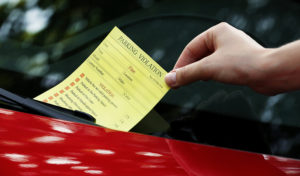 In addition to sending a violation letter and having a hearing, traffic violations should also come with a fine. Drivers are less likely to violate traffic rules if there are monetary penalties. Associations can follow their current fine system for violations. Since reckless driving and speeding can pose a threat to the safety of other members, fines can be on the higher side.
In addition to sending a violation letter and having a hearing, traffic violations should also come with a fine. Drivers are less likely to violate traffic rules if there are monetary penalties. Associations can follow their current fine system for violations. Since reckless driving and speeding can pose a threat to the safety of other members, fines can be on the higher side.
Make sure to check state laws for fine provisions, though. For example, in North Carolina, fines can’t exceed $100. Other states may have similar laws, and it is important to abide by these laws to prevent liability.
7. Outsource to a Security Firm
HOA traffic enforcement does not have to remain in the hands of the association. While some communities have volunteer resident patrols, it may be wiser to outsource the job to a private security firm. A security firm will have all the necessary resources and experience to properly enforce traffic rules. Members are also more likely to listen to private security personnel than their own neighbors.
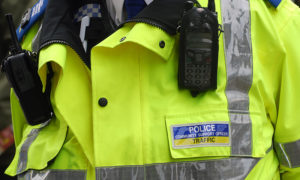 8. Seek Help from Local Police
8. Seek Help from Local Police
Local law enforcement may also be able to lend a hand. If an association has a good relationship with local police, they can ask officers to patrol the community every once in a while. Even the mere presence of a police car parked near an accident-prone area can deter reckless driving.
A Balancing Act
Many association boards encounter trouble with HOA traffic enforcement. It is hard to balance the community’s traffic rules with the desires of owners. But, safety should always come first. Boards should be proactive when it comes to traffic violations and keeping their streets free from accidents. It is generally easier for communities with public roads, as they can simply ask local law enforcement for help. As for HOAs with private roads, following the tips above can significantly minimize reckless driving and speeding in the community.
Coming up with traffic rules and implementing them thereafter can come as a challenge to many associations. Consider hiring Elite Management Services for help in this area. Call us today at (855) 238-8488 or contact us online to request a free proposal.
RELATED ARTICLES:
- How To Change HOA Rules?
- HOA Rules and Regulations: What Homeowners Should Know
- HOA Violation Enforcement: How Should The HOA Enforce Rules

